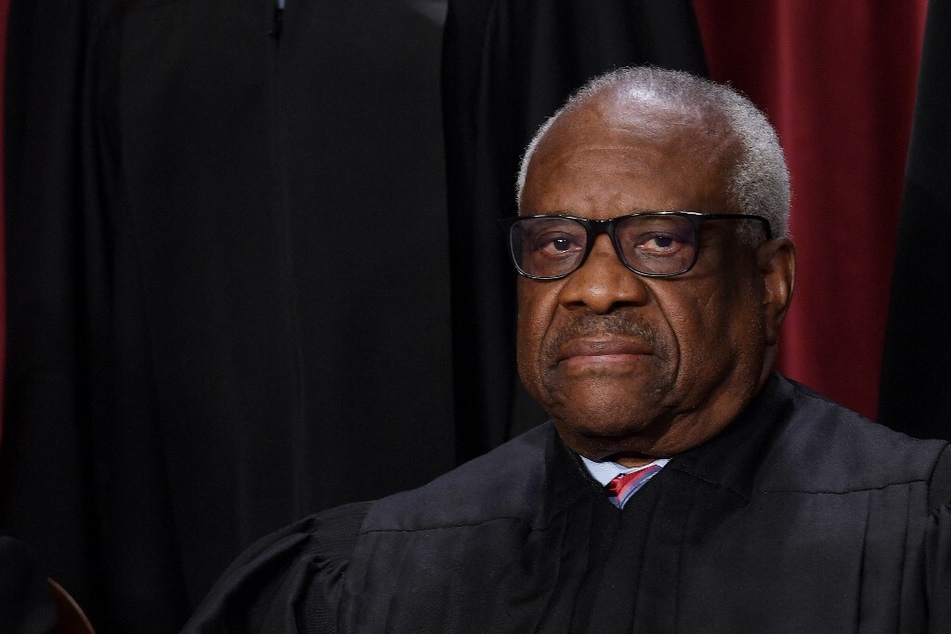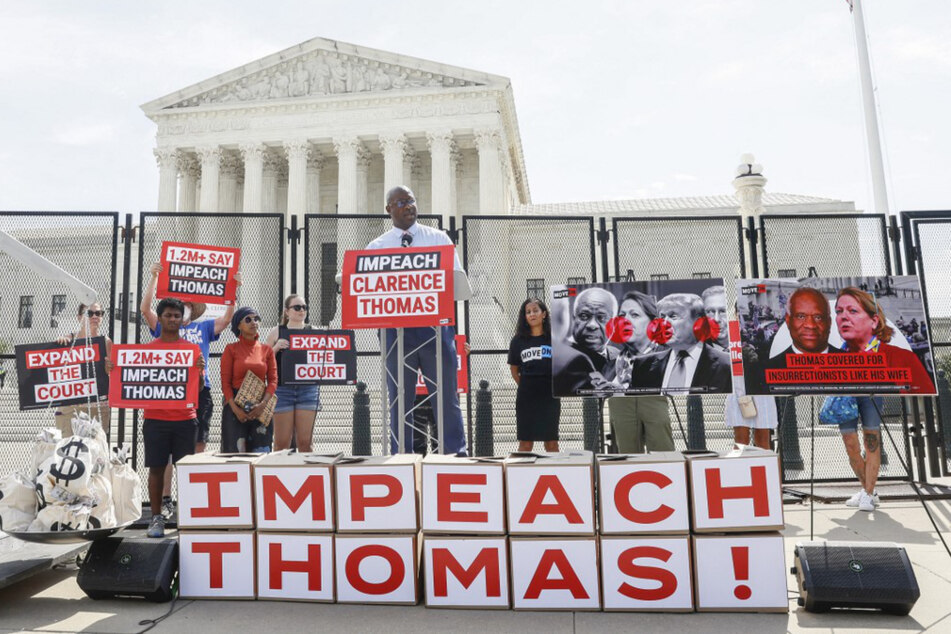Supreme Court Justice Clarence Thomas defends luxury trips from Republican donor
Washington DC - US Supreme Court Justice Clarence Thomas issued a rare statement Friday in response to an investigative news report about unreported trips he received from a Republican donor that renewed Democratic criticisms of the high court’s ethical standards.

The statement followed a ProPublica report on Thursday that for years Thomas did not disclose that he went on international vacations and received free flights on a private jet from eHarlan Crow.
Thomas’ statement said he considers Crow and his wife "among our dearest friends, and we have been friends for over twenty-five years. As friends do, we have joined them on a number of family trips during the more than quarter century we have known them."
"Early in my tenure at the Court, I sought guidance from my colleagues and others in the judiciary, and was advised that this sort of personal hospitality from close personal friends, who did not have business before the Court, was not reportable," Thomas said. "I have endeavored to follow that counsel throughout my tenure, and have always sought to comply with the disclosure guidelines."
Thomas also noted a change to reporting standards adopted by the Judicial Conference of the United States last month that changed when personal gifts may have to be disclosed.
"And, it is, of course, my intent to follow this guidance in the future," Thomas’ statement said.
Under the new rule, judges and justices can only avoid reporting "personal hospitality" like food and lodging when staying at a personal home, according to a March 23 letter to Senator Sheldon Whitehouse from Judge Roslynn R. Mauskopf, the director of the Administrative Office of the US Courts.
Supreme Court faces growing scrutiny over ethical standards

Thursday’s report on Thomas’ trips reignited Democratic criticism of how the justices handle gift disclosures and their ethical standards more broadly.
Whitehouse, who leads the Senate Judiciary Subcommittee that oversees the federal courts and has pressed for more transparency, in a statement Thursday called for a Supreme Court investigation into Thomas’ trips as well as action on legislation to mandate the court pass a code of ethics.
"This Supreme Court has lost its ethical compass," the Democrat from Rhode Island said. "It’s no wonder that the American people are losing faith in the idea that they can get a fair shake before the nation’s highest court when they see a Supreme Court justice openly flouting basic disclosure rules in order to pal around with billionaires in secret."
Democrats have not found allies to advance legislation to set a new ethical code for the justices. Last year, Democrats on the House Judiciary Committee voted along party lines to advance a bill that would create new recusal standards for when a justice should not sit on a case because of a conflict, as well as require the creation of a code of conduct for Supreme Court justices and a new code of conduct for all federal judges, among other provisions.
Republicans currently control the House and Democrats have a one-seat majority in the Senate, meaning any change to the high court would require bipartisan support.
Cover photo: OLIVIER DOULIERY / AFP

